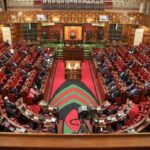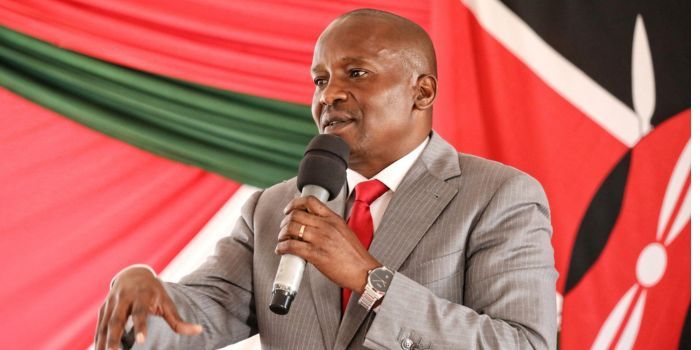In the new tax mobilization and social welfare funds that the William Ruto administration is creating, employers will be one of the most severely impacted groups.
The measures will raise the cost of paying employees, which will affect businesses’ operating expenses and the bar for raising wages and adding new positions.
The Finance Bill promises to harm employers by increasing statutory deductions, raising tax rates, and tightening tax regulations.
Statutory deductions that are added on
Employers will be responsible for half of the burden associated with the National Housing Development Fund required deductions. Employers will never be reimbursed for such donations, unlike employees who will claim them.
The idea would further reduce employee take-home pay, but the clause mandates that businesses match employee payments up to Sh2,500 per employee per month. As a result, businesses may be forced to think about hiring freezes or even job layoffs if personnel costs rise.
Employers can also see a demand for wage increases from workers who want to protect themselves from the higher statutory deductions.
NHIF and NSSF
Employers have incurred greater costs as a result of the NSSF Act’s adoption because they are now required to match employees’ increasing payments.
According to a graded scale, the NSSF Act, 2013, raised the monthly deductions for salaried employees from Sh200 to Sh600 for the lowest earner and from Sh320 to Sh1,080 for the highest earners.
The maximum contribution amounts are planned to increase yearly.
In addition, the proposed changes to the National Health Insurance Fund (NHIF) will increase deductions from the present maximum of Sh1,700 per month to 2.75% of basic earnings.
VAT on fuel products is 16%
Transportation and production costs will rise right away if the fuel VAT is doubled to 16%. Since the price of fuel influences the price of electricity, higher fuel prices will result in higher power bills, which make up a significant portion of a company’s cost base.
The Kenya Association of Manufacturers, for instance, calculates that the cost of power accounts for around one-fifth of all production expenses.
Employers will be expected to pay more money to employees in fuel and transportation reimbursements as a result of rising transport costs, thereby increasing payroll and other operating costs.
Turnover tax
The Finance Bill suggests adjusting the turnover tax, resulting in greater taxes for companies with a sales-based revenue model.
It is anticipated that the expansion of the turnover tax’s application area—from Sh1 million to Sh50 million to Sh500,000 to Sh15 million—will draw in small companies with annual revenues between Sh500,000 and Sh1 million.
Businesses that currently fall under the turnover tax regime and have a turnover of more than Sh15 million but less than Sh50 million will be forced into the mainstream tax system and would have to pay corporation taxes at a rate of 30%.
The shift will result in higher compliance costs as the tax structure shifts away from straightforward accounting, necessitating the hiring of additional employees by businesses. The Bill suggests increasing the turnover tax from 1% to 3%.
Disallowing expenses that are not supported by eTIMS
The taxman is likely to disallow expenses that aren’t documented by eTIMs-compliant invoices. The action is anticipated to be discriminatory toward small business owners that are not on eTIMS this fiscal year and do not qualify for VAT registration.
The clause is anticipated to make it harder for small business owners who reduce expenses as well as for major corporations who refuse to send eTIMs-compliant invoices to smaller companies.
PAYE at 35%
Employees who fall inside the higher tax band may ask for salary increases to help them cope with the more onerous taxes if the proposal to raise the pay as you earn (PAYE) band to 35% is implemented.
Even if few employees make Sh100,000 or more, the demand for higher pay will increase the labor cost base for businesses.
Security for High Court appeals
Company liquidity and cash flows are anticipated to be negatively impacted by the proposed modification to the Tax Appeals Tribunal Act that would compel taxpayers to deposit 20% of the tax at issue or provide security for an equivalent amount with the Kenya Revenue Authority (KRA) prior to submitting an appeal.
This implies that businesses that are unable to increase the high barrier would not challenge the taxman’s demands. According to tax experts, this embargo, which has already been contested in court, is unfair.
Within three days, the withheld VAT must be paid.
Firms and other withholding VAT agents will now have three days instead of the existing 20 days to remit their withheld VAT.
Taxpayers will experience administrative burdens as a result of the proposal’s requirement that taxes be immediately withheld and remitted. The deadlines are too short, according to tax specialists.
Penalty reduction
The KRA Commissioner’s authority to reduce fines or make recommendations to the Treasury was eliminated by the Bill.





























